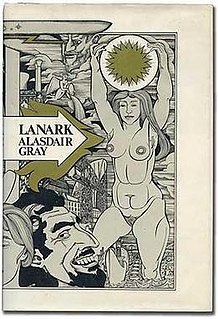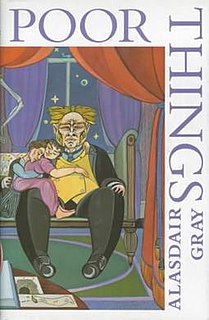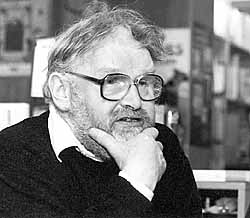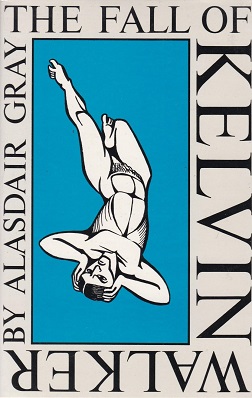
William Thomson, 1st Baron Kelvin, was an Irish-Scottish mathematical physicist and engineer who was born in Belfast in 1824. At the University of Glasgow he did important work in the mathematical analysis of electricity and formulation of the first and second laws of thermodynamics, and did much to unify the emerging discipline of physics in its modern form. He worked closely with mathematics professor Hugh Blackburn in his work. He also had a career as an electric telegraph engineer and inventor, which propelled him into the public eye and ensured his wealth, fame and honour. For his work on the transatlantic telegraph project he was knighted in 1866 by Queen Victoria, becoming Sir William Thomson. He had extensive maritime interests and was most noted for his work on the mariner's compass, which previously had limited reliability.
The Glasgow University Scottish Nationalist Association (GUSNA) is a student organisation formed in 1927 at the University of Glasgow which supports Scottish independence.

Alasdair Chalmers MacIntyre is a Scottish philosopher, primarily known for his contribution to moral and political philosophy, but also known for his work in history of philosophy and theology.

Lanark, subtitled A Life in Four Books, is the first novel of Scottish writer Alasdair Gray. Written over a period of almost thirty years, it combines realist and dystopian surrealist depictions of his home city of Glasgow.
Gregory Edward "Greg" Hemphill is a Scottish comedian, actor, writer and director. Along with his comedy partner, Ford Kiernan, he is best known in Scotland for his appearances in Still Game and Chewin' the Fat. He was Rector of the University of Glasgow 2001–2004.

Kelvingrove Park is a public park located on the River Kelvin in the West End of the city of Glasgow, Scotland, containing the Kelvingrove Art Gallery and Museum.
Robert Haldane Smith, Baron Smith of Kelvin, is a British businessman and former Governor of the British Broadcasting Corporation. Smith was knighted in 1999, appointed to the House of Lords as an independent crossbench peer in 2008, and appointed Knight of the Thistle in the 2014 New Year Honours. He was also appointed to the Order of the Companions of Honour in 2016.

Poor Things is a novel by Scottish writer Alasdair Gray, published in 1992. It won the Whitbread Novel Award in 1992 and the Guardian Fiction Prize for 1992.

The Kelvin Hall, located on Argyle Street in Glasgow, Scotland, is one of the largest exhibition centres in Britain and now a mixed-use arts and sports venue that opened as an exhibition venue in 1927. It has also been used as a concert hall, home to the Kelvin Hall International Sports Arena to 2014, and from 1987 to 2010, Glasgow's Museum of Transport. As part of the economic redevelopment of Greater Glasgow promoted by the Scottish Development Agency and local authorities to enhance the city's tourist infrastructure and to attract further national and international conferences, the Scottish Exhibition and Conference Centre was designed as the Hall's successor for exhibitions and entertainments, built and opened on the nearby Queen's Dock in 1985 with an exhibition area equal in size to the Kelvin Hall but with the benefit of extensive car parks and land for other complementary buildings. The Hall is protected as a category B listed building, and is served by city bus services and by Kelvinhall subway station.
Agnes Owens was a Scottish author.

Lean Tales is an anthology of short stories written by Scottish authors Alasdair Gray, Agnes Owens and James Kelman, with author illustrations by Alasdair Gray. Contractually obligated to Jonathan Cape to provide a new book, Gray claimed to find himself without new material or ideas, and so approached Kelman and Owens to bulk out a collection of stories with some of their own. As is often the case with Gray's later stories, some of his own contributions are recycled from his previous writing, including The Story of a Recluse and A Report to the Trustees of the Bellahouston Travelling Scholarship.
David Greig is a Scottish playwright and theatre director. His work has been performed at many of the major theatres in Britain, including the Traverse Theatre, Royal Court Theatre, Royal National Theatre, Royal Lyceum Theatre and the Royal Shakespeare Company, and been produced around the world.

Alasdair Gray (1934–2019) was a Scottish writer and artist. His first novel, Lanark (1981), is seen as a landmark of Scottish fiction. His written works combine realism, fantasy, and science fiction with the use of typography and his own illustrations, and have won many awards. He painted several murals, including one at the Òran Mór venue and one at Hillhead subway station. Gray was a civic nationalist and a republican, and wrote supporting socialism and Scottish independence, and on the history of English literature. He married twice and had one son.

Adam Tomkins is an academic and politician based in Scotland. He is the John Millar Professor of Public Law at the University of Glasgow School of Law and was elected a Member of the Scottish Parliament for Glasgow in the 2016 Scottish Parliament election. He is shadow cabinet secretary for communities, social security, the constitution and equalities. Until 2015 Tomkins was constitutional advisor to the House of Lords Constitution Committee. From 2015 he has acted as constitutional advisor to the Scotland Office and Secretary of State for Scotland David Mundell.
Events from the year 1992 in Scotland.
Events from the year 1934 in Scotland.

Scottish literature in the eighteenth century is literature written in Scotland or by Scottish writers in the eighteenth century. It includes literature written in English, Scottish Gaelic and Scots, in forms including poetry, drama and novels. After the Union in 1707 Scottish literature developed a distinct national identity. Allan Ramsay led a "vernacular revival", the trend for pastoral poetry and developed the Habbie stanza. He was part of a community of poets working in Scots and English who included William Hamilton of Gilbertfield, Robert Crawford, Alexander Ross, William Hamilton of Bangour, Alison Rutherford Cockburn, and James Thompson. The eighteenth century was also a period of innovation in Gaelic vernacular poetry. Major figures included Rob Donn Mackay, Donnchadh Bàn Mac an t-Saoir, Uillean Ross and Alasdair mac Mhaighstir Alasdair, who helped inspire a new form of nature poetry. James Macpherson was the first Scottish poet to gain an international reputation, claiming to have found poetry written by Ossian. Robert Burns is widely regarded as the national poet.
Surgeon Vice Admiral Alasdair James Walker, was a British medical doctor and senior Royal Navy officer. He served as Surgeon-General of the British Armed Forces.
Graham Eatough is an English theatre director and playwright, based in Scotland. He was a founding member of theatre company Suspect Culture.
Alasdair Gray (1934–2019) wrote novels, short stories, poetry and drama.










